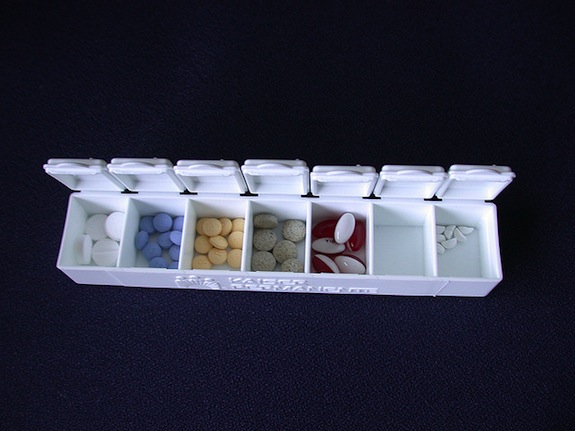New Set of Patients May Be Cured of HIV With Early Treatment
Researchers announce that they have cured fourteen adults of HIV by treating them early

Image: Dvortygirl
Last week, researchers announced that they had functionally cured a baby of HIV. This week, different researchers announced that they have cured fourteen adults of HIV by treating them early. New Scientist reports:
Asier Sáez-Cirión of the Pasteur Institute’s unit for regulation of retroviral infections in Paris analysed 70 people with HIV who had been treated with antiretroviral drugs (ARVs) between 35 days and 10 weeks after infection – much sooner than people are normally treated.
Now, these patients have lived without medication for about seven years, with no ill effects. This is what scientists call a functional cure – traces of the virus might still be present, but patients don’t need medication to manage their disease. The same early treatment is what appears to have helped the infant in Mississippi shake the virus as well.
The same questions from Mississippi baby case apply to these fourteen new cases, as well. Some researchers wondered if the baby ever really had HIV in the first place, and whether or not the virus might not simply reappear later in life. BBC writes:
Dr Andrew Freedman, a reader in infectious diseases at Cardiff University School of Medicine, said the findings were “certainly interesting”.
“The presumption is that they’ve started treatment very early and the virus hasn’t spread to so many of the long-term reservoirs and that’s why it works.
“Whether they’ll control it forever, or whether it’ll be for a number of years and subsequently they will progress and the virus will reappear, we don’t know.”
And when it comes to the Mississippi case, many researchers are unconvinced that the baby was ever infected. The Wall Street Journal writes:
To many of the researchers at the conference, the answer is “no.” It seems more likely that her treatment prevented her, after exposure to HIV, from being infected. The reason we give medicines to both pregnant women and their newborns is precisely to prevent HIV exposures in children from becoming established infections, an intervention that can decrease the rate of transmission from about 30% to less than 1% in optimal conditions.
This could have been what worked for the fourteen in this study as well, as they were all treated far before most patients. Unlike the baby’s case, this report actually has a paper connected to it, for scientists to look at. The researchers will continue to monitor the patients to see just how long they can go without drugs, and whether the HIV is truly gone.
More from Smithsonian.com:
Mississippi Baby Might Have Been Cured of HIV
HIV in 3-D
/https://tf-cmsv2-smithsonianmag-media.s3.amazonaws.com/accounts/headshot/Rose-Eveleth-240.jpg)
/https://tf-cmsv2-smithsonianmag-media.s3.amazonaws.com/accounts/headshot/Rose-Eveleth-240.jpg)